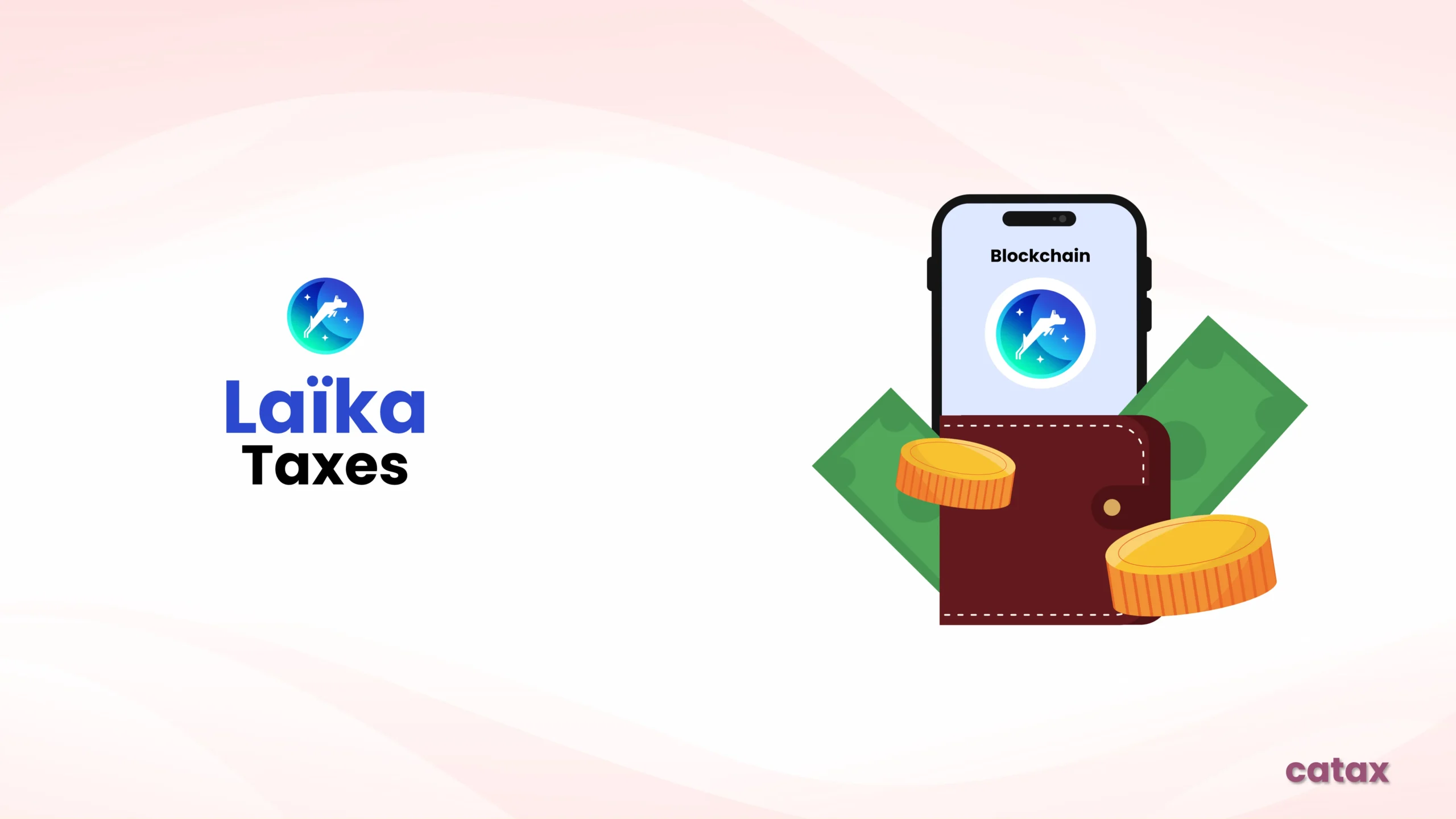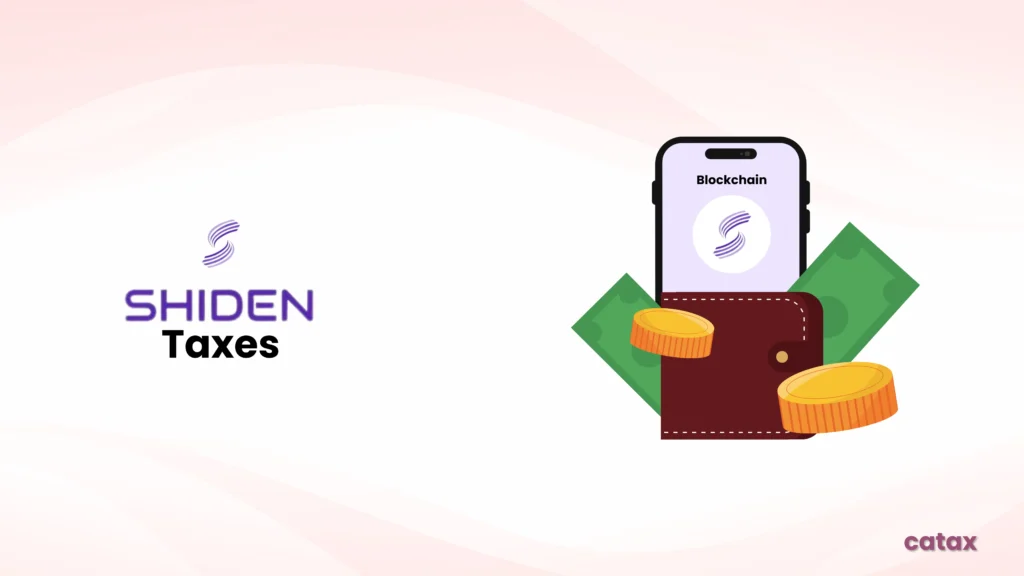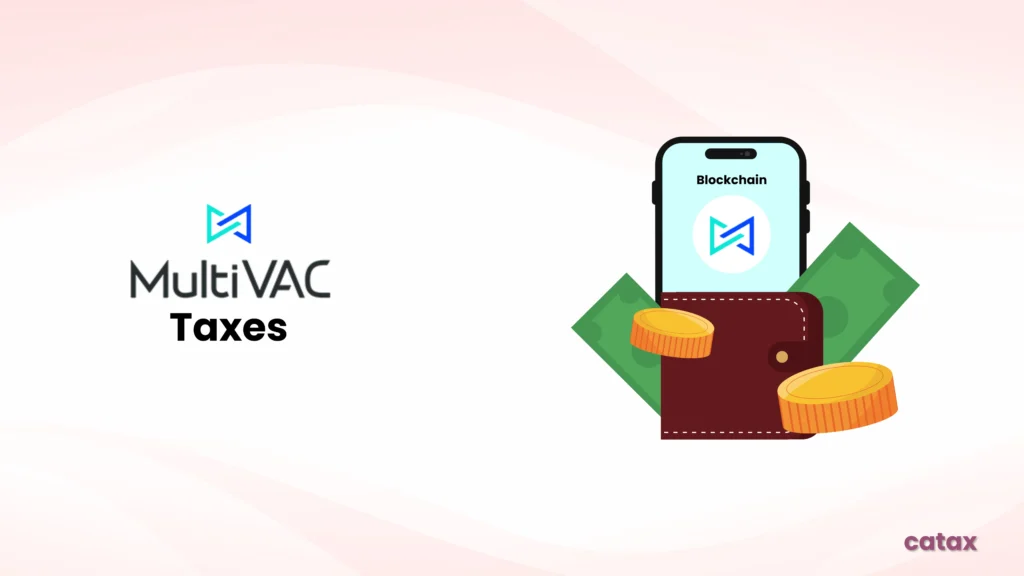Cryptocurrency tax rules vary by country, and Laika (LAIKA) taxes transactions may be taxed differently depending on local regulations. Whether you buy, sell, trade, or stake LAIKA, understanding how tax authorities classify these activities helps you stay compliant and avoid penalties.
This guide simplifies Laika tax rules so you can manage your taxes confidently and stay on the right side of the law.

How to Connect Your Laika Wallet to Catax?
To track your Laika (LAIKA) transactions and calculate taxes effortlessly, follow these steps to connect your wallet to Catax:
- Open your Laika wallet or access a block explorer that supports Laika transactions.
- Copy your public wallet address from your Laika wallet.
On Catax:
- Log in to Catax and select your country.
- Select Chain, then search for Laika Wallet.
- Paste your public address and click Connect.
Once connected, Catax will automatically track your LAIKA transactions and simplify your crypto tax reporting.
Calculate My Taxes ➤Are Laika (LAIKA) Transactions Taxable?
Yes, in most countries, Laika (LAIKA) transactions are taxable. Tax authorities may classify LAIKA as a capital asset, property, or income depending on how it’s used.
When Do You Have to Pay Taxes on Laika (LAIKA)?
You may need to pay taxes when you:
- Sell LAIKA for a profit – If you sell your Laika tokens for more than you paid, the gain is typically subject to capital gains tax.
- Trade LAIKA for another cryptocurrency – Swapping LAIKA for Bitcoin, Ethereum, or any other crypto is often considered a taxable event.
- Use LAIKA for purchases – Buying goods or services with LAIKA may trigger a taxable gain if the token has increased in value.
- Earn LAIKA from staking or rewards – Tokens received through staking or other network rewards are usually taxed as income when received.
- Receive LAIKA as payment – If you’re paid in LAIKA for goods or services, the received amount is generally taxed as income based on its fair market value at the time.
Since tax treatment depends on your country’s laws, always check your local crypto tax regulations.
Can You Deduct Trading Fees and Other Costs?
Laika users may be able to deduct certain expenses associated with trading or managing LAIKA, depending on local tax rules.
Some countries allow deductions for:
- Trading fees when buying or selling LAIKA
- Network or gas fees when transferring LAIKA between wallets
Others may only allow:
- Deduction of your original purchase price (cost basis), excluding other costs.
Check your country’s tax guidelines to understand which expenses are deductible.
How Is Laika (LAIKA) Taxed Based on Holding Period?
The tax rate on your LAIKA gains can vary depending on how long you hold your tokens:
- Short-term holdings (less than one year) – Typically taxed at standard income tax rates.
- Long-term holdings (more than one year) – Some countries offer reduced tax rates for long-term capital gains.
- Flat-rate tax systems – In some jurisdictions, crypto gains are taxed at a fixed rate regardless of the holding period.
Knowing your country’s specific crypto tax rules can help you reduce liabilities and plan a smarter tax strategy.
You can also check out our Country-Specific Guide for Crypto in Your country. This guide provides insights on regulations, tax implications, and compliance measures breifly explained for each country.
How Is Staking Income Taxed?
Laika (LAIKA) staking rewards offer passive income opportunities, but taxation depends on your country’s laws. Some governments tax staking rewards as soon as they’re received, while others apply tax only when you sell or exchange them.
How Countries Tax Staking Rewards
- Taxed as income – In many countries, staking rewards are treated like salary or earned income. Taxes are due at the time you receive the LAIKA tokens, based on their market value.
- Taxed as capital gains – In other regions, staking rewards are only taxed when you sell or exchange them. You pay tax only on the profit made from the sale.
If you stake Laika, it’s crucial to know when taxation begins to plan for tax obligations. Some countries tax staking rewards even if you don’t sell them.
Check how your country taxes staking rewards before you stake Laika (LAIKA) to avoid surprises.
Can You Claim Laika Losses for Tax Benefits?
Not every LAIKA trade results in profit, and selling at a loss might reduce your overall tax bill. Here’s how crypto losses are treated in different countries:
- Loss offsets – Some tax systems allow you to offset gains with LAIKA losses, reducing the amount of taxable income.
- Loss carryforward – If you don’t have gains this year, you may be able to carry your losses into future years to reduce future tax obligations.
- Limited deductions – A few countries don’t allow you to deduct crypto losses at all, meaning you won’t get any tax relief from LAIKA losses.
Keeping detailed transaction records helps you report losses correctly and get tax benefits where allowed.
How to Stay Compliant with Laika (LAIKA) Tax Rules?
Crypto tax laws evolve, and staying compliant with Laika tax regulations is essential. To avoid penalties:
- Understand your country’s tax rules – Are LAIKA transactions treated as income, capital gains, or business earnings?
- Know what costs are deductible – Can you claim gas fees, staking rewards, or wallet security expenses?
- Maintain detailed transaction records – Track every transaction involving LAIKA: buying, selling, staking, trading, or spending.
- Use a crypto tax tool like Catax – Catax simplifies tax reporting by automatically tracking and calculating your LAIKA taxes.
- Consult a tax professional – Unsure about your obligations? A tax advisor can help you stay compliant with local regulations.
Stay organized and informed to manage your Laika (LAIKA) taxes efficiently and legally.
Book a Free Consultation Now →

